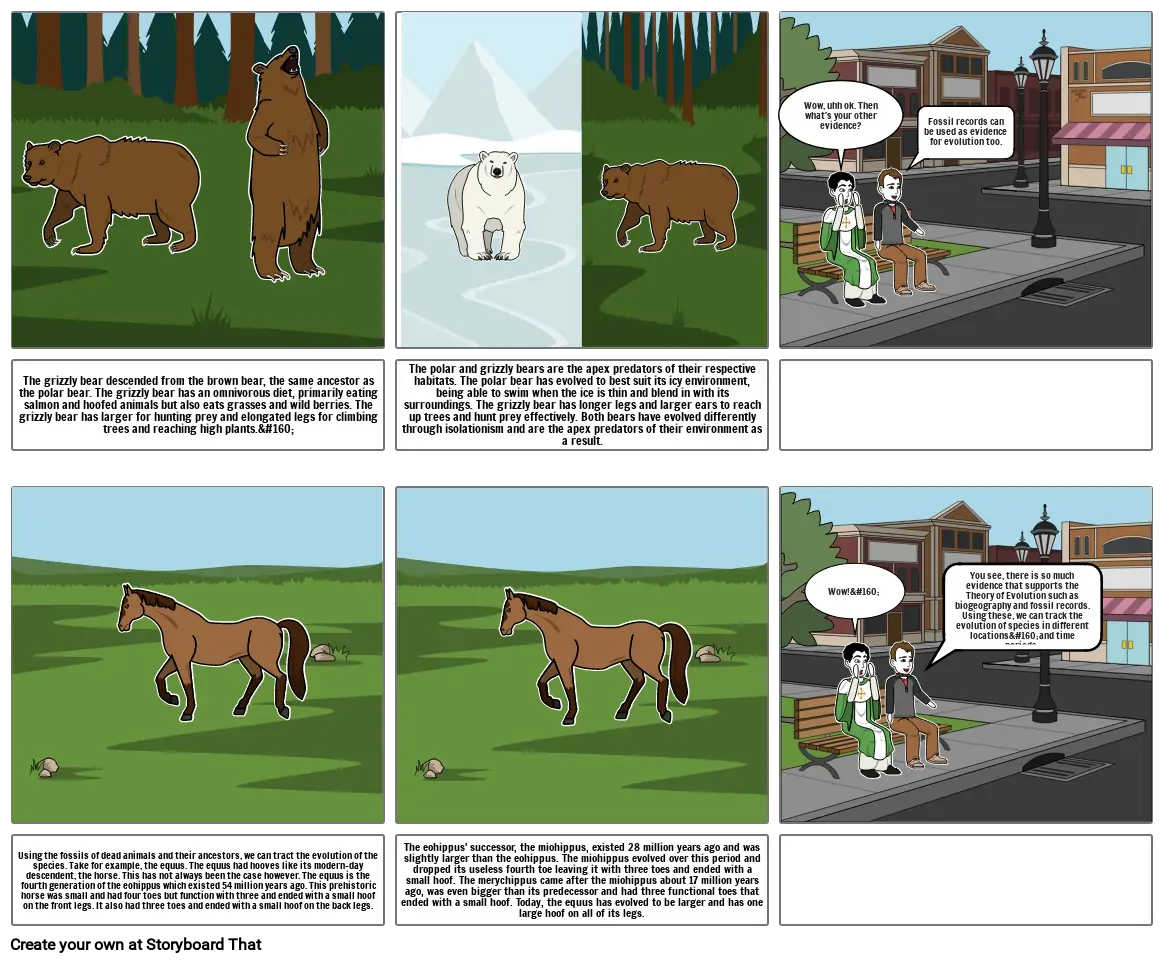Unknown Story

Storyboard Text
- Wow, uhh ok. Then what's your other evidence?
- Fossil records can be used as evidence for evolution too.
- The grizzly bear descended from the brown bear, the same ancestor as the polar bear. The grizzly bear has an omnivorous diet, primarily eating salmon and hoofed animals but also eats grasses and wild berries. The grizzly bear has larger for hunting prey and elongated legs for climbing trees and reaching high plants.
- The polar and grizzly bears are the apex predators of their respective habitats. The polar bear has evolved to best suit its icy environment, being able to swim when the ice is thin and blend in with its surroundings. The grizzly bear has longer legs and larger ears to reach up trees and hunt prey effectively. Both bears have evolved differently through isolationism and are the apex predators of their environment as a result.
- a
- Wow!
- You see, there is so much evidence that supports the Theory of Evolution such as biogeography and fossil records. Using these, we can track the evolution of species in different locationsand time periods.
- Using the fossils of dead animals and their ancestors, we can tract the evolution of the species. Take for example, the equus. The equus had hooves like its modern-day descendent, the horse. This has not always been the case however. The equus is the fourth generation of the eohippus which existed 54 million years ago. This prehistoric horse was small and had four toes but function with three and ended with a small hoof on the front legs. It also had three toes and ended with a small hoof on the back legs.
- The eohippus' successor, the miohippus, existed 28 million years ago and was slightly larger than the eohippus. The miohippus evolved over this period and dropped its useless fourth toe leaving it with three toes and ended with a small hoof. The merychippus came after the miohippus about 17 million years ago, was even bigger than its predecessor and had three functional toes that ended with a small hoof. Today, the equus has evolved to be larger and has one large hoof on all of its legs.
Over 30 Million Storyboards Created

